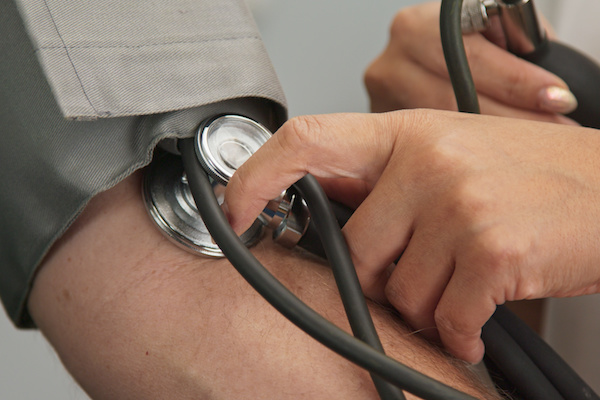High Blood Pressure & the Kidneys | Tennessee Valley Urology Center

People with high blood pressure, also called hypertension, certainly are aware they should get it under control for a lot of reasons. One they may not be aware of is the condition can lead to lasting kidney damage and even kidney disease.
If you are among the 108 million Americans who have hypertension, here are some things you should know about how it can impact the kidneys. Every situation is different and you should talk with your doctor about your specific health conditions and steps you should take, but this is some of what we know about high blood pressure and the kidneys.
What Is High Blood Pressure?
The Centers for Disease Control and Prevention (CDC) defines high blood pressure as a reading with an arm cuff of greater than 130 mm Hg systolic or 80 mmHg diastolic. Stage 2 hypertension starts at 140⁄90 mm Hg.
According to the Mayo Clinic, blood pressure is related to the amount of blood the heart pumps and the resistance to the flow of blood through your arteries. It may become elevated because of high cholesterol buildup in the arteries, excessive weight that causes the heart to have to work harder and other common health issues.
Many patients show no symptoms of hypertension, at least in the early years of the condition, but even during that time it can cause damage to the heart and blood vessels. It’s the latter of those that can also create lasting kidney damage.
How Does Hypertension Affect the Kidneys?
High blood pressure is the second leading cause of kidney failure. That’s because it can cause narrowing and constriction of the blood vessels, which reduces blood flow through them.
Since the kidneys are tissues filled with blood vessels, damage to those conduits significantly limits the ability of the kidneys to do their important, blood-filtering work.
The National Institutes of Health indicates early chronic kidney disease (CKD) may cause no symptoms, but as the condition progresses, it can lead to swelling of the extremities, such as the ankles or hands. It can also cause myriad symptoms, including lose of appetite, fatigue, headaches, increased or decreased urination, and unexplained weight loss.
If you have concerns about your blood pressure and how it might be impacting your kidneys or if you notice symptoms of CKD, talk to our experts at Tennessee Valley Urology Center for the care you need.
